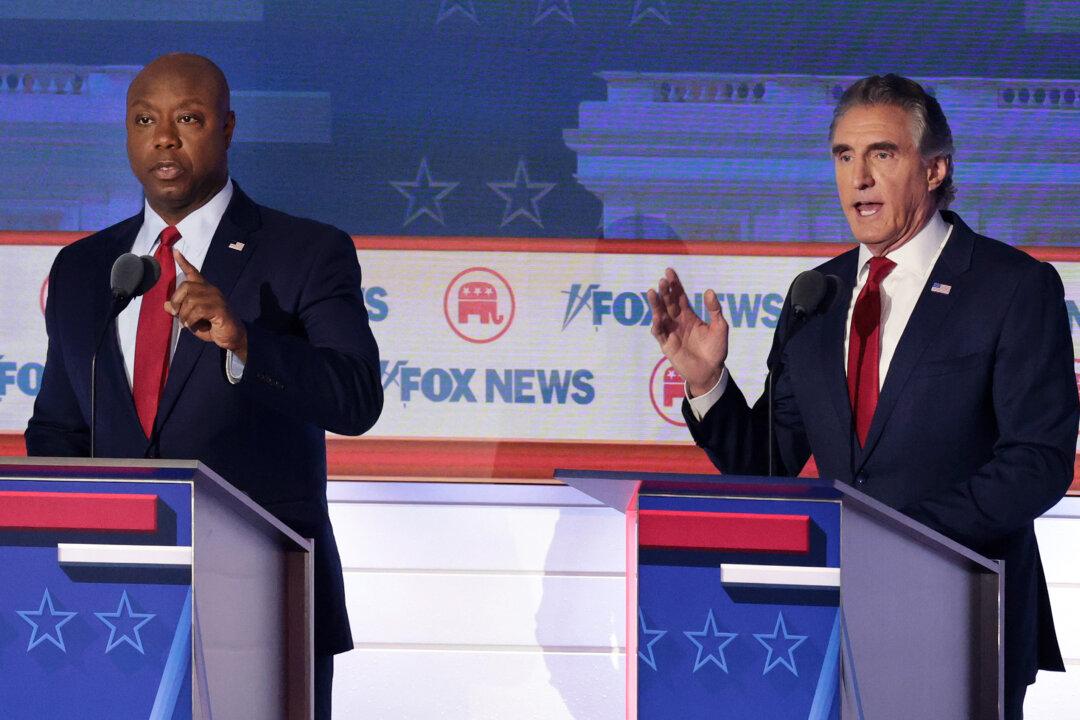The eight candidates at the first Republican presidential debate in Wisconsin discussed China’s threats against the United States, but some said more time should be spent on the issue.
“China is the No. 1 threat to our country and every minute that these candidates spend talking about the past instead of about the future is … you know who loves it? [President Joe] Biden loves it, but China loves it,” said North Dakota Gov. Doug Burgum during the debate, when answering a question about Jan. 6.





